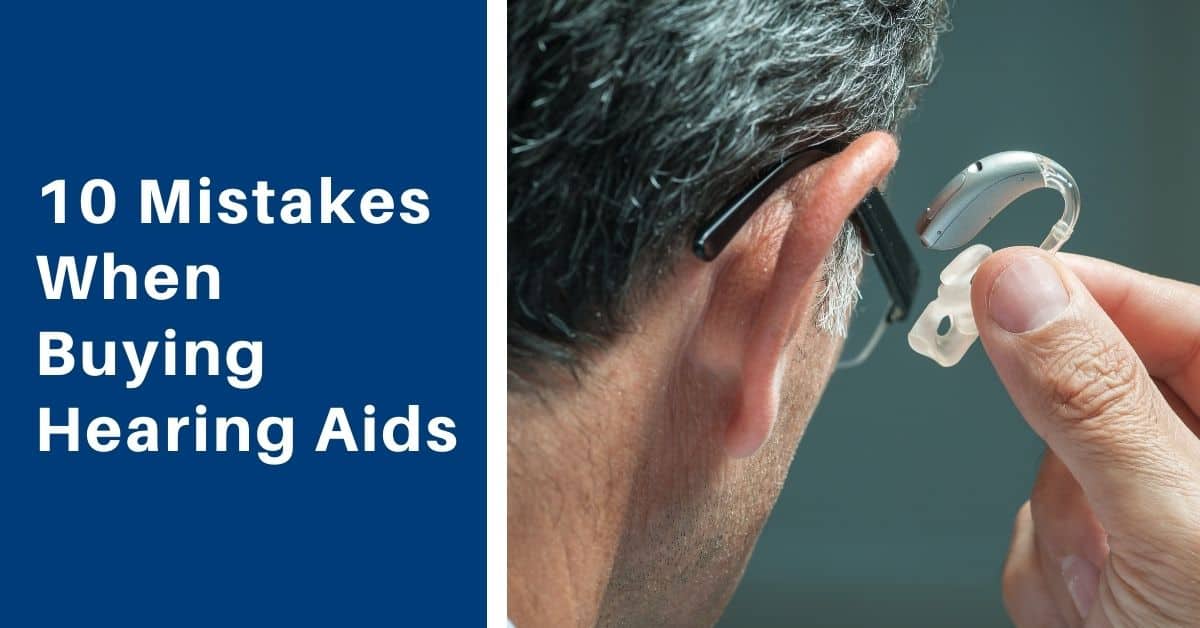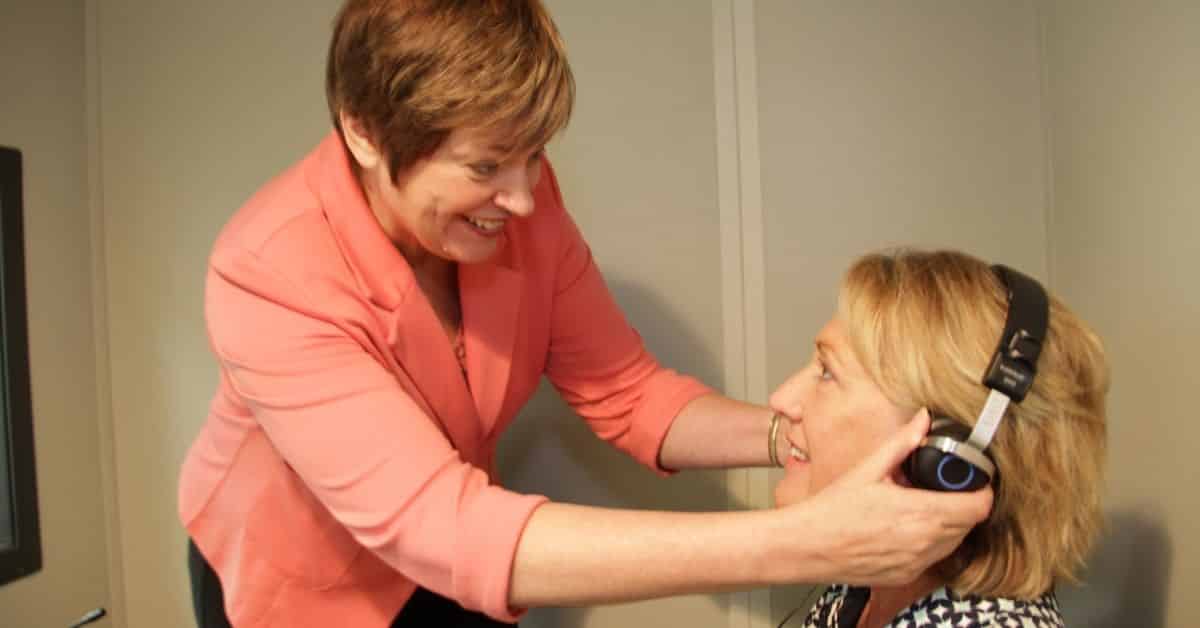
Every week I meet someone who invested in hearing aids, hoping to solve some of their communication problems, only to become frustrated and disgusted that they ever tried hearing aids in the first place. It doesn’t have to be that way for you.
Did you know that one out of three hearing aid purchases made end up in a drawer? That’s because first-time buyers are often uninformed and simply don’t know where to get good information. I want to educate those of you who are getting ready to invest in better hearing so that you won’t have to make any of these ten costly mistakes.

The 10 Mistakes People Make When Buying Hearing Aids
- Most people are reluctant to get help for their hearing. When they finally do seek help, they allow themselves to become victims in the process because they didn’t want hearing aids in the first place. Who does? First-time buyers fall prey to being treated like a number in an impersonal, busy medical system or worse, get seduced by high-pressure sales.
- They treat a hearing aid purchase like buying a TV – Investing in your hearing care, (not just buying hearing aids) is best approached like investing in finding the right heart doctor and getting a pacemaker – hearing instruments are complex medical devices that need adjustments and programming. You and your family also need special care and counseling as you go through the process of learning to hear in a whole new way. This process takes a minimum of four to six weeks for the average person.
- People buy based on a quick 15 – 20 minute hearing test – It is extremely important that your hearing healthcare provider get a complete medical history and performs a full lifestyle assessment. A thorough hearing test and consultation takes closer to an hour. Anything less, you will NOT get the care you need and deserve.
- People purchase hearing aids without knowing how much they will improve their ability to understand speech. Most people don’t need to hear, louder, they need to hear clearer. Comprehensive speech testing must be done so you and your hearing healthcare provider can get a “before and after” picture of how much hearing aids will help you. This should be openly discussed with you to set realistic expectations.
- People fall for high-pressure sales tactics – A red flag should go up as warning if you hear the words, “This week only”. Don’t allow yourself to be pressured by anyone into buying hearing aids.
- They don’t get a second opinion – People often feel trapped or obligated to go through their HMO or insurance. 80% of the time, people do not have any hearing aid benefits and will have to purchase them out of pocket. Choose where you feel comfortable rather than blindly go through the medical system.
- People buy strictly on the basis of price – “$895 – This week only!” These are typical “bait and switch” techniques. If you do end up buying the $895 special, it’s usually old technology and ends up in a drawer. And that’s a waste of money.
- People don’t read the fine print – All claims about hearing aids being on sale should be accompanied by “the fine print.” This is where you find out that the “Great Savings” is based on the exaggerated MSRPs (Manufacturer’s Suggested Retail Price). The manufacturer might suggest a pair of hearing aids be sold for $10,000 and now you are offered 40% off if you buy, today, bringing it down to $6000. A reputable hearing practice may fit those same hearing aids for $5600 and include all the follow-up care and service. A year after the $6000 purchase, you’ll be paying for every service appointment and adjustment. So where are the great savings?
- People are pressured into buying – They are seen by a “closer” – a “factory technician” or a “visiting specialist” who is there specifically to close you on buying hearing aids today – not to help you with your hearing health for the long term.
- They don’t trust their gut feelings about the office and the provider – Always trust your gut feelings. Don’t buy from anyone if you are uncomfortable about how you are being treated.

Avoid these 10 mistakes but don’t make the most, costly mistake of all
Waiting for years to treat your hearing loss, to avoid making a mistake, is ironically the most, costly mistake. Do what more and more people are doing. It doesn’t matter what insurance you have. Take advantage of Avalon’s Free EDUCATIONAL Hearing Test and Consultation. In a 90-minute appointment, you’ll learn about your own unique hearing loss because that’s where the rubber meets the road. You can spend the rest of your life researching and getting general information. Ultimately, that will do nothing to help you hear more clearly and stay connected to what matters most in your life.
